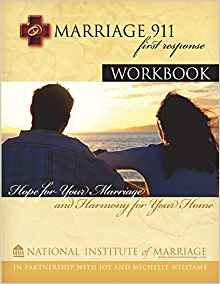 THIS FATHER’S DAY I want to recognize a particular group of dads who may approach the day with a bit of apprehension.
THIS FATHER’S DAY I want to recognize a particular group of dads who may approach the day with a bit of apprehension.
These are dads I sometimes get emails from who are persevering even in the midst of separation or divorce. Their wives have left or asked them to leave, and the pain of being separated not only from their wife but their children is tearing them apart.
In some situations, of course, the wife has had a good reason for her actions, but whether this is true in his particular case or not, the man I pay tribute to today has taken this to God, understands how he has erred, sought forgiveness, and is taking the necessary steps to become the man God created him to be. In the meantime, while he tries to rebuild trust with his wife, he is attempting to be a good dad to his children.
Dads who are separated or divorced have an especially difficult task, and I say kudos to those who keep their promises, make the effort to be a part of their children’s lives, show up for baseball games and dance recitals, is respectful of their mother in spite of the situation, and tries to maintain consistency in their child’s life while the child is shuffled between two different households.
Being a good dad is important to him. While he is aware of his failures, he wants with all his heart to be a good dad. He wants his children to be proud of him and know that he loves them. He doesn’t want to disappoint them. He wants to overcome the challenges.
So instead of criticizing his wife, he is humble and honest about his own shortcomings as God reveals them to him. He doesn’t try to drive a wedge between the children and their mother and prays with the children that God will use these adverse circumstances to bring good into their lives according to Romans 8:28, which says, “All things work together for good for those who love God and are called according to His purpose.” And without expectations from his wife, he continues to take appropriate responsibility in the home.
These are dads who are doing everything they can to let God change them into the men He created them to be, who step up to their role as fathers and become stronger men in the process, showing their children how to handle life’s challenges and failures. By seeking God and looking to Him for guidance, by humbly admitting mistakes, and honestly confronting their issues without blaming and being defensive, they become an example to their children of humble, honest, and godly manhood.
So this Father’s Day, I want to say thanks to the dad who rises up to become the man, the dad, and the husband God has called him to be, putting behind him the insecurities and failures of the past and pressing on to follow God and to be an example to his children of the power of God’s redemption.
If you’re a man who wants to fight for his family and his marriage, let me help you on this journey through my book, Fighting for Your Marriage while Separated.










